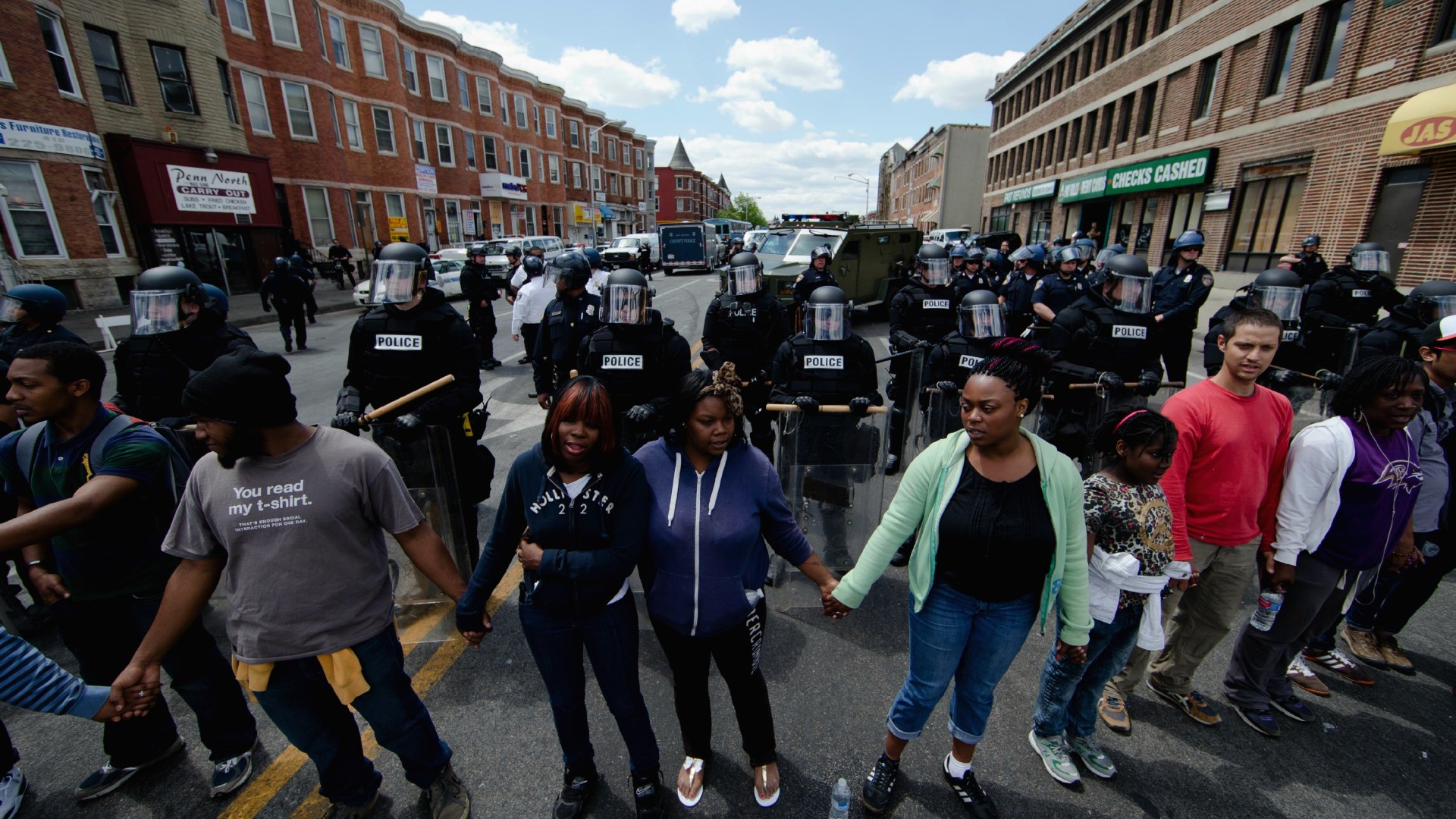My memories of Baltimore police seem like parallel realities. “Officer Friendly” came to my elementary school back in the ‘80s, a uniformed hero in front of an excited classroom full of black kids. After that, the boys spent recess imitating police officers and catching bad guys. We wanted to be good citizens, and we didn’t question the instinct to call police in times of trouble.
When I was little, I was once a flower girl in the wedding of two of Baltimore's finest. At that age, I remember wanting to be the beautiful bride, a proud policewoman. For much of my childhood, cops were at least valuable parts of our community and at best, heroes…until I met a different kind of officer.
Playing in front of our apartment complex, my friends and I were approached by a patrolling officer who told us we were too noisy. As fourth-graders, we all responded, “Yes, sir,” almost in unison. The officer then turned to the only boy among us, a black boy, and sternly told him that he deserved to be spanked. And that if his parents would not do it, he could and would.
I think of that officer and that boy as I watch the protests in Baltimore. I feel sorry for the kids and young adults who never knew an Officer Friendly and at this point could hardly imagine one.
In recent years, more than 100 people in my hometown—from teenagers to pregnant women to grandmothers—won court judgments or settlements over allegations of police brutality and excessive force, according to reports from the Baltimore Sun.
The news out Baltimore hits close to home for a native like me. The church of my childhood, New Shiloh Baptist Church, hosted the funeral of Freddie Gray, the 25-year-old man who died from injuries suffered in custody of the Baltimore Police Department. His family would say he was much more than the incident that has made his name famous. The thousands who have taken to the streets in protest would say Gray’s incident has come to represent so much more than him.
My parents are still deacons at the church, a historic and vibrant congregation of 5,000 in West Baltimore. It is where I first heard the gospel. It is surreal to see gang members in the church’s lobby talking to news reporters, though their remarks about unity and human dignity seem so fitting. That church is where I learned about my own dignity and worth.
The late pastor of New Shiloh Baptist, Harold A. Carter, knew well the legacy of nonviolent resistance. He gained his firsthand training as an adolescent in Selma, marching under the leader who inspired his ministry, Martin Luther King Jr. Carter heard King preach and attended King's alma mater, Crozer Theological Seminary, before becoming pastor of New Shiloh in 1965.
As Gray was eulogized by Carter’s son, Harold A. Carter Jr., I thought of how desperate we are for a reemergence of a deeply gospel-centered philosophy of nonviolent resistance. Both passivity and misdirected rage are unproductive and delude us of real issues. Christ’s story, a divine lens, gives us an alternative in which to understand what we see around us, within us and how to justly respond.
The gospel narrative points us to the life of a near-eastern Semite in Roman-occupied Palestine. Jesus walked the earth at a time of great injustice, violence, and palpable ethnic tensions. He lived to die an excruciating death at the hands of first century law enforcement while being completely innocent. Christ, who has all power, demonstrates this act of love on behalf of His people, a guilty people in desperate need of grace. It is a story that produces responses of both disbelief and surrender.
We see the world through our stories and lenses—me with my own experiences growing up, good and bad, and others with theirs. In some ways, we won’t ever be able to shake our own histories, memories, and instincts. But I have come to learn that I cannot rely solely on my own narrative. I must look beyond my perspective to see the systemic and historic context. I must look for the broader story and the gospel lens. Without that fuller perspective, we may miss the call to empathize, mourn, and rise up against injustice.
It’s Christ’s paradigm that frees us from our own delusions, from focusing on broken windows instead of broken bones, from the privilege of ignoring the situation altogether. It is the gospel that clears our vision, yet reminds us of unquenchable hope.
Christina Edmondson is dean for intercultural student development at Calvin College. She consults with churches about diversity-related issues and writes regularly about culture on her blog www.asktheculturequeens.com. Follow her on Twitter @DrCEdmondson.









